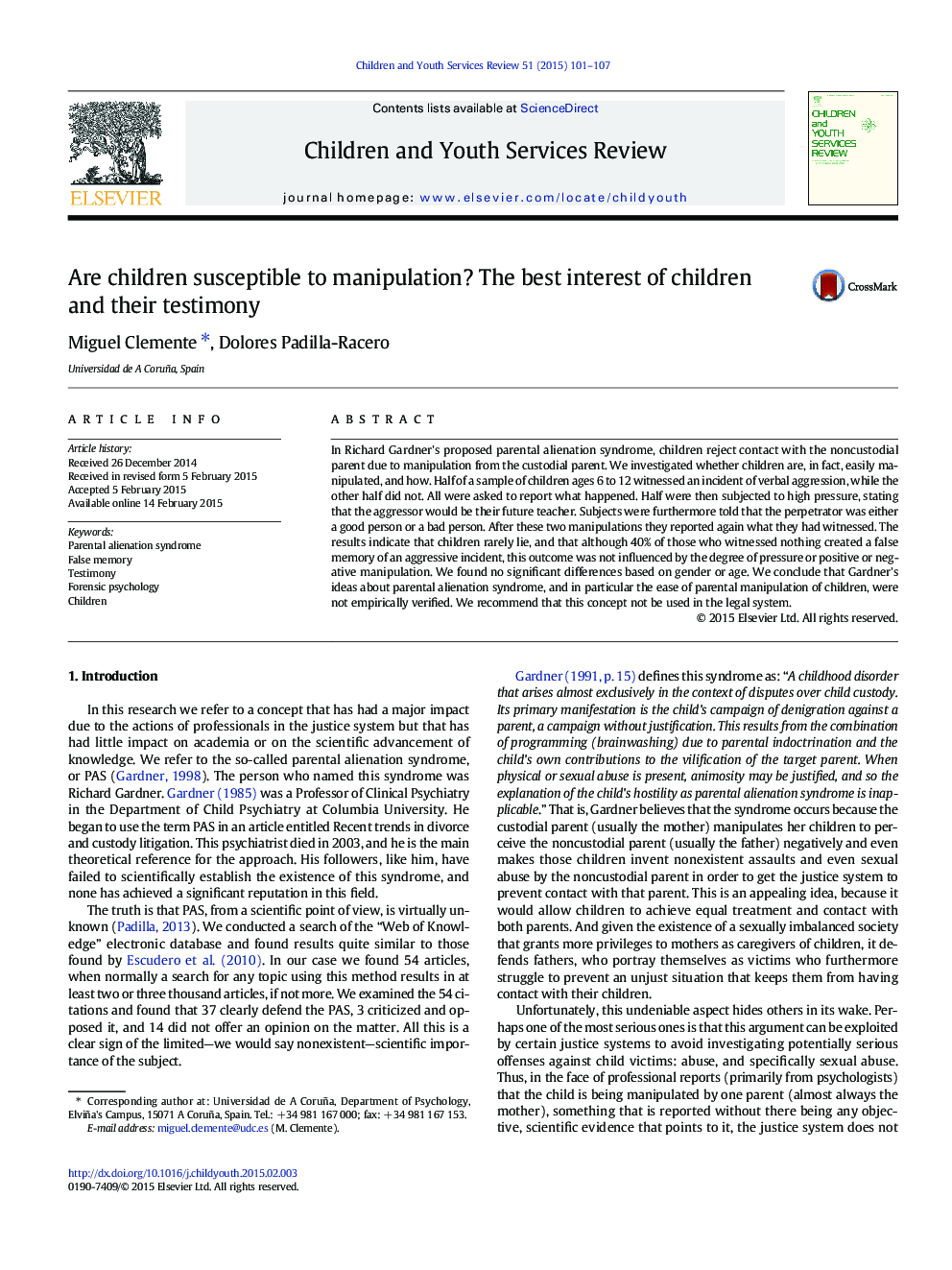| Article ID | Journal | Published Year | Pages | File Type |
|---|---|---|---|---|
| 6834080 | Children and Youth Services Review | 2015 | 7 Pages |
Abstract
In Richard Gardner's proposed parental alienation syndrome, children reject contact with the noncustodial parent due to manipulation from the custodial parent. We investigated whether children are, in fact, easily manipulated, and how. Half of a sample of children ages 6 to 12 witnessed an incident of verbal aggression, while the other half did not. All were asked to report what happened. Half were then subjected to high pressure, stating that the aggressor would be their future teacher. Subjects were furthermore told that the perpetrator was either a good person or a bad person. After these two manipulations they reported again what they had witnessed. The results indicate that children rarely lie, and that although 40% of those who witnessed nothing created a false memory of an aggressive incident, this outcome was not influenced by the degree of pressure or positive or negative manipulation. We found no significant differences based on gender or age. We conclude that Gardner's ideas about parental alienation syndrome, and in particular the ease of parental manipulation of children, were not empirically verified. We recommend that this concept not be used in the legal system.
Related Topics
Health Sciences
Medicine and Dentistry
Perinatology, Pediatrics and Child Health
Authors
Miguel Clemente, Dolores Padilla-Racero,
